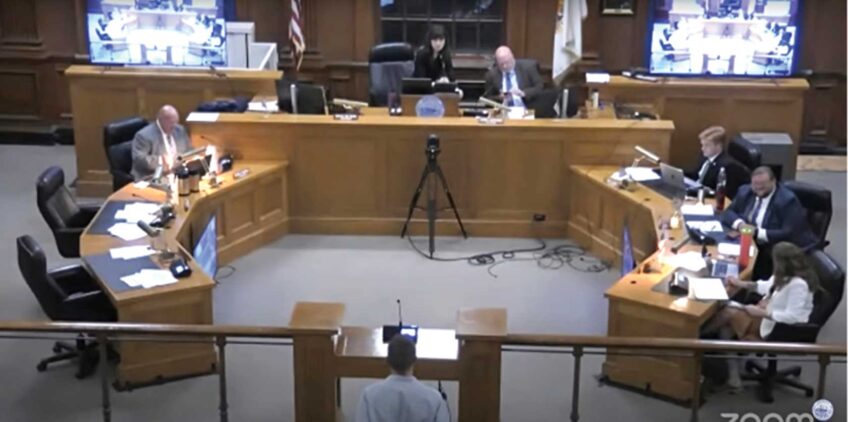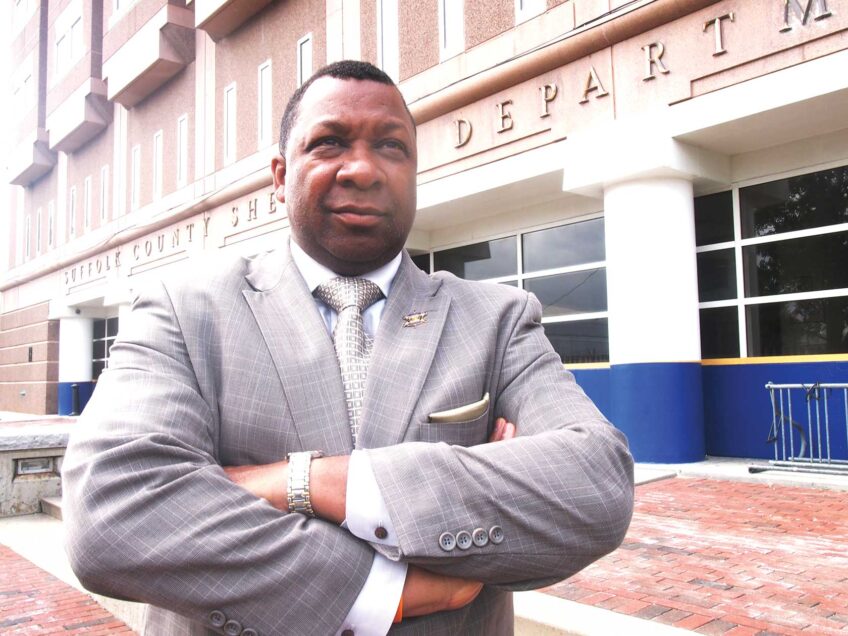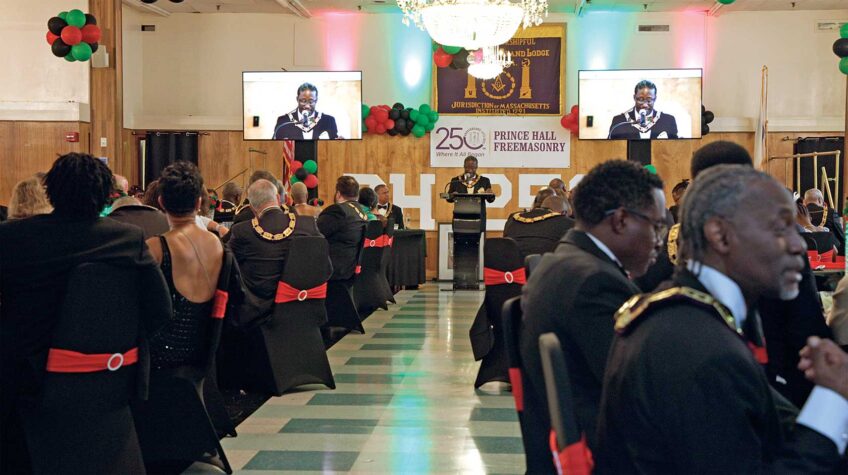Essaibi George gets majority of cop donations
Donations seen tied to positions against defunding department
One of the issues that has defined the Boston mayoral election has been the split in ideology over police reform and the support candidates have received from police officers. As candidates approach the finish line, financial support from officers has been far higher on behalf of at-large City Councilor Annissa Essaibi George.
Essaibi George, who has made it clear she opposes any cuts to the department and is in fact in favor of hiring more police officers, has received more than $150,000 in individual donations from BPD and other law enforcement officers. This is on top of an endorsement from former BPD Commissioner William Gross.
At-large Councilor Michelle Wu, on the other hand, supports “structural changes” to the department and a reallocation of funds from overtime spending to “neighborhood-level services.” Still, according to campaign finance records, she has received a little over $7,000 in donations from police officers.
Both candidates have spoken in favor of adding non-police mental health professionals to aid in responses to mental health crises.
Police reform has been at the forefront of many Bostonians’ minds after the murder of George Floyd by a Minneapolis officer sent shock waves across the country, spurring protests and prompting local governments to engage in conversations on how to prevent further violence.
In 2019, police reform activist Jamarhl Crawford served on the Boston Police Reform Task Force formed by Mayor Marty Walsh. It’s clear, he said, that “law enforcement people are spending money towards goals and people and issues that speak to their own self-preservation.”
Crawford added that this attempt to uphold the power of police is coming even from outside of Boston.
“Many of these people, what they are doing is they are investing in their interest,” he said. “Their interest has nothing to do with if they’re even voting, if they even live here, whatever — they are putting their little nickel into the jar.”
The impact of financial support is real, according to a group of researchers from the Data for Justice project in collaboration with BU Spark!, the ACLU of Massachusetts and the Latinx political advocacy group Mijente.
Analyzing data from the Massachusetts Office of Campaign and Political Finance, the group concluded that “engagement by police staff and their unions in state and local politics often acts as an obstacle to meaningful reform.”
The group notes significant police donations to now-U.S. Labor Secretary Walsh, who as mayor allowed fraudulent overtime spending to continue and who has been accused of being soft on the former president of the Boston Police Patrolmen’s Association accused of abuse.
“You see just how much police donations go for, especially [with] the mayor in a strong mayoral system that has a lot of control over the budget,” said Jonathan Rodrigues of Mijente.
He continued, “For example, candidate for mayor Annissa Essaibi George is, in this cycle, the highest recipient of police donations. And you see that reflected in her policy statements around ‘We’re not for reallocation, we’re not for defunding’ … We’re not for touching the police budget in a significant way, like so much community has asked for.”
Rodrigues very much echoed Crawford’s conclusion — that police donations are not necessarily ‘tit for tat’ for individual officers, but that they ensure “interests as police will be safeguarded.”
Since the creation of a new Office of Police Accountability and Transparency at the recommendation of the Police Reform Task Force, enactment of its policies has been slow going. Both Crawford and Rodrigues spoke to the hope that whoever sits in the mayor’s office next will continue to make progress.
“What we’re calling for as an entire task force is for both of these mayoral candidates to vow, pledge, whatever the word you want to use is, as did Mayor Walsh when we first did it, to implement all of these [recommendations] fully, in the true spirit they were intended,” Crawford said.
Rodrigues said Mijente wants “real accountability” from both the mayor’s office and the police, along with necessary funding shifts.
“We need to actually fund and support our communities,” he said.
In a statement, Essaibi George said that despite the optics of the donations and her support for maintaining the budget, she believes that police reforms are necessary.
“We must make critical reforms, root out cover-up culture, and build back trust between the Boston Police Department and our communities. Any member of the Department that isn’t for this should plan on leaving before I am sworn in as Mayor.”
A statement from the Wu campaign did not discuss the donations but stated, “We need urgent reforms to the structures and culture of the Boston Police Department to address racism in policing and ensure safety for all our communities” and that Wu “will fight for true accountability, transparency, and a public health-led approach to crisis response to ensure we are building trust with communities.”






